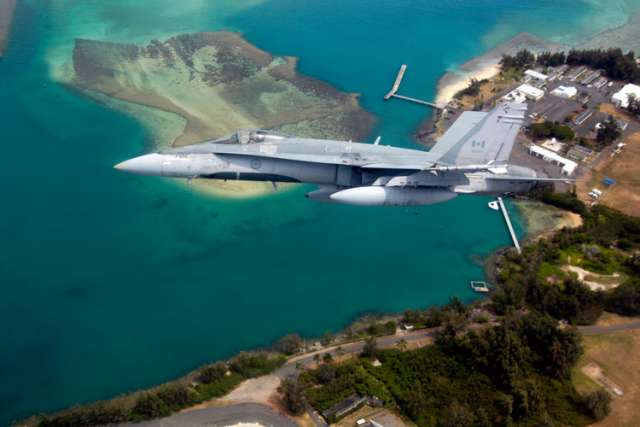“I honestly don’t know,” the NDP’s foreign affairs critic said last week outside the House of Commons. “The danger is it might start out being just, but I’m not at all sure it will end up being a just war.”
His cautionary note came moments after Prime Minister Stephen Harper announced Canada would contribute CF-18 fighter jets as a part of a six-month mission to strike back at the so-called Islamic State of Iraq and the Levant (ISIL). In his statement to the House setting out the government’s case for military action against the al-Qaeda offshoot, Harper could not have been more confident of the justice of the cause.
“ISIL has established a self-proclaimed ‘caliphate’ stretching over a vast territory... from which it intends to launch a terrorist jihad,” the PM said. “It has tortured and beheaded children. It has raped and sold women into slavery. It has slaughtered minorities, captured prisoners and (killed) innocent civilians. By late summer, ISIL stood on the brink of committing large-scale genocide.”
No ambiguity there. Nor, Harper insisted, can there be philosophical fluttering about Canada’s moral obligation to join the U.S.-led coalition already bombing ISIL. Not, he said, when Canadians have been specifically targeted for terrorist vengeance.
Neither the Liberals nor the New Democrats were convinced. Although Liberal leader Justin Trudeau has cautiously supported Canada’s limited efforts to combat ISIL, he was emphatic his party “will not support this prime minister’s decision to go to war in Iraq.”
NDP leader Thomas Mulcair warned of going from “mission creep to mission leap” by drawing Canada ever deeper into an Afghanistan-like quagmire. The New Democrats won’t give the Conservatives laissez-passer to risk the lives of Canada’s military men and women, he said.
The refusal of both parties to approve the government’s response might seem baffling given the facts on the ground of ISIL’s ferocity. Yet it is true to their respective histories. The forerunner to the NDP, the CCF, was steeped in Christian pacifism. For the Liberals, then Prime Minister Jean Chretien’s unwillingness to join the so-called “coalition of the willing” during the 2003 Iraq invasion marked a golden moment in independent Canadian foreign policy.
But can there really be a question of the justness of dropping at least an ordinate amount of ordnance on the heads of those who behead other human beings? Up to a point, the ancient tradition of just war, codified as doctrine by the Catholic Church stretching back to St. Augustine, says there can be no question.
The first requirement of just war doctrine is that the aggressor has inflicted “lasting, grave and certain damage on a nation or the community of nations. The second is that there be no practical or effective alternative to war. Check and check in the case of ISIL.
The third requirement is that there be serious prospects for success. The Opposition parties argue there is no certainty of victory, but just war doctrine doesn’t demand guarantees.
The fourth requirement, however, gives credence to Dewar’s concern that what begins as a just cause may not end as justice. Just war doctrine does insist “the use of arms must not produce evils and disorders graver than the evil to be eliminated.”
As Dewar pointed out, echoing the arguments of both Liberals and New Democrats, Western use of arms in the region for decades, and especially post-2003, has created a compounding of evils. ISIL is but the latest manifestation. It won’t be the last. With all the bombs dropped, bullets spent and lives lost, the opposition argues, we are actually farther from eliminating evil than we have ever been.
How much farther, then, will we have fallen upon disordered times? We honestly don’t know. Stopping monsters surely justifies the risk. At the same time, cautionary voices merit respect if only to keep us from creeping, then leaping, from justice to jingoistic danger.
(Stockland is the Director of the Cardus Centre for Cultural Renewal.)


